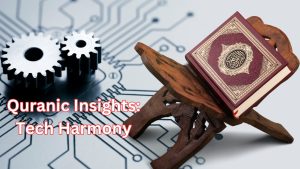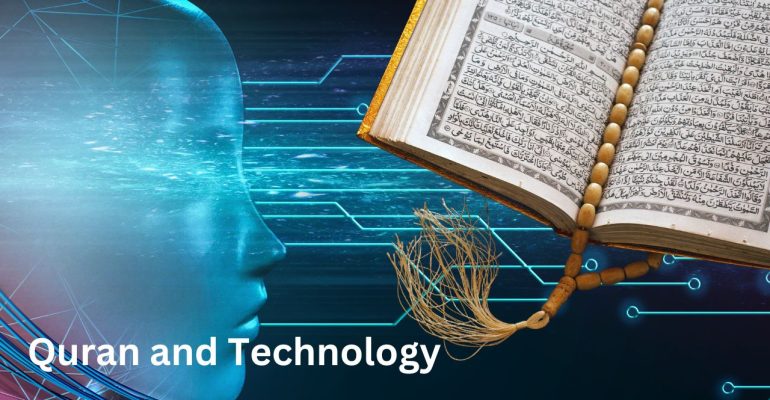Quran and Technology: Islamic Values in Advancements
January 18, 2024 2024-01-18 10:37Quran and Technology: Islamic Values in Advancements
Quran and Technology: Islamic Values in Advancements
In our fast-paced, technologically driven world, the integration of spirituality and technology might seem like an unconventional partnership. However, the Quran, the sacred scripture of Islam, offers profound guidance on numerous aspects of life, including the application of technology. In this comprehensive exploration, we will delve into what the Quran says about technology, uncover historical technological contributions by Muslims, discuss the pivotal role of modern technology in Islamic studies, and scrutinize the Quranic stance on innovations.
Understanding the Quran’s Perspective on Technology
While the Quran, revealed over 1,400 years ago, doesn’t explicitly mention contemporary technology, it emphasizes the significance of knowledge and encourages the contemplation of the world around us. In Surah Al-Mulk (67:3-4), the Quran prompts believers to reflect on the intricacies of creation, fostering a sense of curiosity and inquiry that can potentially lead to technological advancements.
The Quran acknowledges the ever-changing nature of the world and encourages believers to seek knowledge and understanding. This broader perspective allows Muslims to approach technological advancements with an open mind, understanding that the pursuit of knowledge is a noble endeavor.
Exploring Historical Technological Advancements by Muslims

The Islamic Golden Age, spanning from the 8th to the 14th century, marked a period of extraordinary intellectual and scientific achievements in the Muslim world. Scholars of this era made groundbreaking contributions to diverse fields, including mathematics, astronomy, medicine, and engineering.
One notable figure from this golden age is Abbas ibn Firnas, an Andalusian polymath. In the 9th century, he designed an early flying machine, showcasing the early Muslim interest in technological innovation. The translation movement in centers like Baghdad and Cordoba played a crucial role in preserving and transmitting ancient knowledge to the West, laying the groundwork for the Renaissance.
Modern Technology’s Role in Islamic Studies
In the 21st century, modern technology has become an indispensable tool for the study and dissemination of Islamic knowledge. Online platforms provide unprecedented access to a vast array of resources, enabling individuals to engage with the Quran, Hadith, and Islamic jurisprudence from anywhere in the world.
A noteworthy resource in this digital age is the article titled “Nurturing Faith in the New World: A Personalized Journey through Quranic Wisdom for the American Soul” available on QuranEClass1. This article explores the applicability of Quranic teachings in the contemporary American context, offering personalized insights to guide readers on a profound journey of faith.
Beyond individual study, modern technology has facilitated the global spread of Islamic knowledge. Livestreams, webinars, and virtual conferences connect scholars and learners across continents, fostering a sense of unity among Muslims globally. Technology acts as a unifying force, breaking down geographical barriers and making Islamic teachings accessible to diverse audiences.
Quranic Perspective on Innovations

The Quran recognizes and appreciates human creativity and the capacity for innovation. In Surah Al-Baqarah (2:205), it states, “And when he goes away, he strives throughout the land to cause corruption therein and destroy crops and animals. And Allah does not like corruption.” This verse underscores the Quranic principle that positive efforts aimed at improving the world and benefiting humanity are commendable.
However, ethical considerations are paramount in the Quranic framework. The teachings emphasize justice, fairness, and compassion. Muslims are encouraged to utilize technology responsibly, ensuring that innovations align with Islamic values and contribute to the well-being of society.
Conclusion: Faith and Progress in the Digital Age

In conclusion, the Quran serves as a timeless guide for Muslims navigating the realm of technology. Its emphasis on knowledge, exploration, and ethical conduct encourages believers to view modern technology as a tool for personal and collective growth. As Muslims continue to contribute to technological advancements, they carry forward the legacy of the Islamic Golden Age, demonstrating that faith and progress can harmoniously coexist in the ever-evolving landscape of the digital age.





